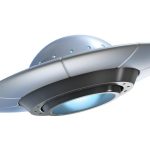Many people, particularly those new to the concept of Big Data, think of Big Data and Hadoop as almost one and the same. But there are frameworks other than Hadoop that are gaining popularity. The costs of implementing Hadoop can be quite substantial, and so organizations are exploring other options. Alternatives to Hadoop for big and unstructured data are emerging. The two … [Read more...] about Big Data Hadoop Alternatives: What They Offer and Who Uses Them
Technical
Learn all about technical data and programming and why it's crucial for businesses. Get knowledge on how to collect and use this information to improve your products and services.
An Overview of Data Analysis Tools to Start the Journey of Exploration
The Digital Revolution spawned by the PC and digital communications is driving a new ecosystem of businesses forward. They are capitalizing on this rich new resource we call "data" to provide services via analysis and reporting. The deluge of information is disrupting all business verticals. The Main Categories Data Visualization for Corporate Enterprise Data Cleansing, … [Read more...] about An Overview of Data Analysis Tools to Start the Journey of Exploration
The Hadoop Honeymoon is Over
Listen up Big Data playmates! The ubiquitous Big Data gurus, tied up in their regular chores of astroturfing mega-volumes, velocities and varieties of superficial flim flam, may not have noticed this, but, Hadoop is getting set up for one mighty fall or a fast-tracked and vertiginous black run descent. Why do I say that? Well, lets check the market. According to Gartner there … [Read more...] about The Hadoop Honeymoon is Over
Blog 1: Essays On Statistics Denial
"If you think you understand quantum theory, then you do not understand quantum theory." - Richard Feynman UFO sightings, where do they all come from? Astronomers spend an inordinate amount of time scouring the skies. However, as far as we know, no credentialed astronomer has ever reported a UFO. None, zilch. Statistics denial myths, where do they all come from? We have … [Read more...] about Blog 1: Essays On Statistics Denial
5 Best Python Libraries For Data Science
If you have decided to learn Python as your programming language. What are the different Python libraries available to perform data analysis? This will be the next question in your mind. There are many libraries available to perform data analysis in Python. Dont worry; you dont have to learn all of those libraries. You have to know only five Python libraries to do most of the … [Read more...] about 5 Best Python Libraries For Data Science
What is technical data?
Technical data can be something as simple as a list of ingredients for a recipe or a more complex set of instructions for assembling a piece of furniture. Technical data can also be mathematical formulas or set points for calibration. No matter what form it takes, technical data is always designed to provide information that will help people to understand and use a particular product or service.
In some cases, technical data may be subject to special regulations, such as those governing the handling of confidential personal information. However, in general, technical data is considered to be publicly available information. Want to learn more about technical data? Datafloq has courses available. Contact us to get started.
What is the purpose of technical data?
Technical data is often used to create engineering drawings or specifications, which are then used to manufacture the product. Technical data can also be used to troubleshoot problems with a product or system.
For example, if a component is not working properly, technicians may refer to the technical data to determine the root cause of the problem. Technical data is an essential part of the product development process and can be very useful for businesses and consumers.
What are examples of technical data?
Technical data refers to the specifications of a product or system, including its performance, dimensions, weight, etc. It is often used in the context of engineering or manufacturing. For example, engineers will consider the vehicle’s weight, aerodynamics, and engine size when designing a new car.
Technical data can also be used to compare different products or systems. For example, if you are trying to decide between two different types of printers, you might look at their printing speed, paper capacity, and resolution.
What is technical data analysis?
Technical data analysis aims to help make better decisions by understanding the data better. Technical data analysis can be used for different purposes, such as predicting future events, identifying trends, or spotting outliers. Many different statistical methods can be used for technical data analysis, and the choice of method will depend on the type of data and the question you are trying to answer.
What is a high-tech startup?
A high-tech startup is a company that uses technology to create new products or services. These startups are usually founded by entrepreneurs with innovative ideas for a new business. Many high-tech startups are based around developing new software or hardware, but some may also focus on creating new medical devices or developing new clean energy technologies.
Whatever their focus, all high-tech startups share a common goal: to bring their innovative ideas to market and create value for their customers.
What is a high-tech business?
A high-tech business is an organization that develops or uses advanced technological processes and products in its operations. Many high-tech businesses are involved in research, development, engineering, and manufacturing. They often work with cutting-edge technologies, such as artificial intelligence, biotechnology, and nanotechnology.
These businesses typically require a highly skilled workforce and substantial investment in research and development. Due to the risky nature of developing new technologies, many high-tech businesses are venture-backed startups. However, some large companies, such as Google and Apple, are also considered high-tech businesses.







